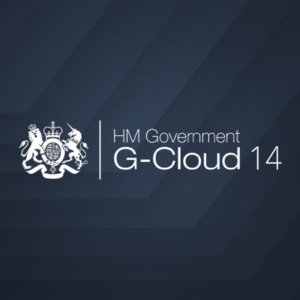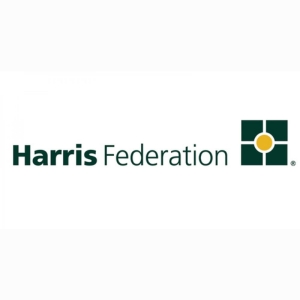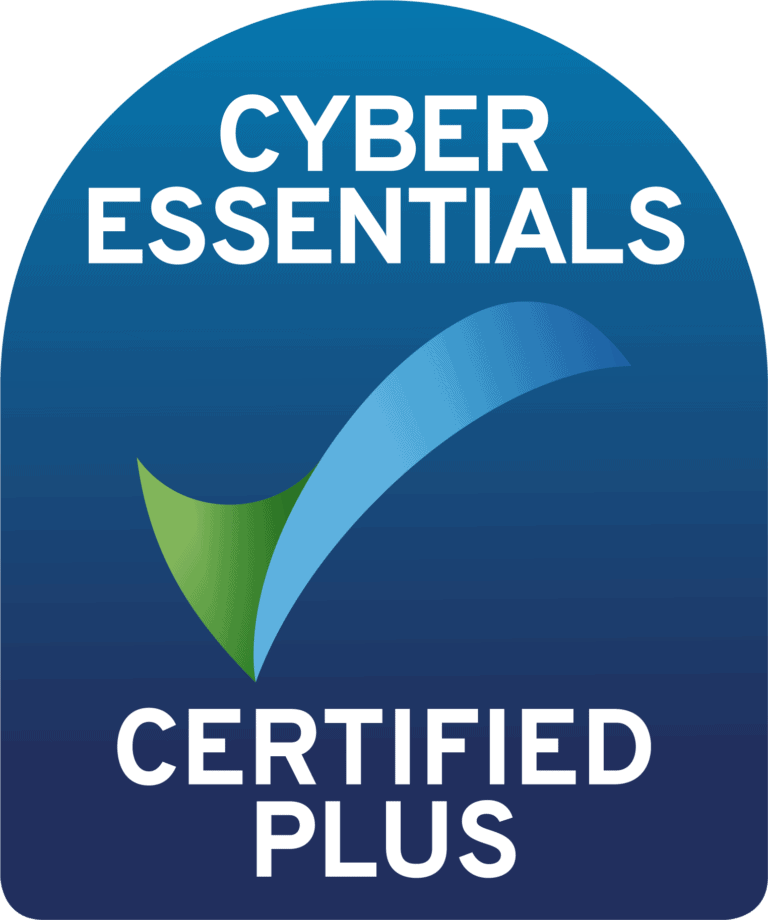Malikshaw Interim
2026 Talent Landscape: A Quick Preview
Reflecting on the trends that shaped 2025 and what they mean for 2026, it's a great moment to explore what's influencing the recruitment landscape and what's coming next. For hiring managers and interim professionals alike, understanding these trends helps you stay ahead, attract the right talent, and make the most of emerging opportunities.
1. Clarity and Purpose Matter More Than Ever
This year has reinforced a simple truth: top talent is drawn to organisations that communicate purpose clearly. Interim professionals want to understand not just the role, but how it contributes to the bigger picture. Organisations that highlight impact and outcomes continue to attract high-quality candidates more quickly.
2. Flexibility is No Longer Optional
Hybrid, flexible, and remote arrangements have firmly shifted from "nice-to-have" to "expected." Professionals increasingly consider flexibility when choosing projects. For hiring managers, this means adapting processes and expectations to ensure roles are attractive to the best interim talent.
3. Candidate Experience Drives Results
The way candidates are treated — from first contact through to final decision — truly matters. Clear communication, transparent timelines, and constructive feedback not only improve acceptance rates, but also strengthen employer reputation. Interim professionals, in particular, value clarity throughout the process.
4. Skills, Not Just Titles, Are in Focus
More organisations are prioritising practical skills and experience over formal titles or academic credentials. Interim professionals with demonstrable expertise, a strong track record, and the ability to deliver impact remain highly sought-after.
5. Inclusivity and Diverse Perspectives
We continue to see a strong emphasis on inclusive recruitment practices. Organisations that actively seek diverse viewpoints and foster a culture of belonging are more likely to attract top interim talent — and keep them engaged for future projects.
Looking Ahead to 2026 As we move further into 2026, these trends are set to not only continue but evolve. Clarity, flexibility, candidate experience, skill-based hiring, and inclusivity aren't passing trends; they are becoming essential foundations for attracting and retaining top interim talent. Organisations that embrace these principles will be well positioned to thrive, while professionals who recognise these shifts can better navigate opportunities and make meaningful contributions.
Practical Takeaways
• Clearly articulate the impact and purpose of each role.
• Offer flexible and adaptable working arrangements.
• Prioritise transparent and positive candidate experiences.
• Highlight skills, results, and contributions rather than just titles.
• Build inclusivity into recruitment and team culture.
At Malikshaw, we've seen firsthand how these trends influence successful recruitment. Whether you're hiring your next interim professional or exploring your next opportunity, understanding and applying these insights can make the process smoother, faster, and more effective.
Beat the Freeze : Strategic Hiring
As the calendar turns, organisations might be preparing for the new financial year, reviewing the calendar year ahead, or digesting the latest announcements from the Chancellor's budget and spending review. These regular milestones can create pauses in hiring, but rather than seeing them as setbacks, they can be powerful opportunities to plan strategically and refine your recruitment approach. Getting it right the first time ensures the right people are in place to deliver impact from day one.
Periods of budget constraints or hiring freezes are ideal for reflection and preparation. Take the time to clarify roles and objectives, ensuring every position has a clear purpose and measurable outcomes. Map essential skills to understand the expertise required for current priorities and upcoming projects. Engage recruitment partners early to build a shortlist of high-quality candidates so that once approvals are in place, you can move quickly.
Interim professionals fit naturally into this planning cycle. They provide immediate expertise and flexibility, allowing organisations to maintain momentum while budgets, approvals, or structural changes are finalised. Using interims strategically ensures that key projects stay on track and that permanent recruitment decisions can be made deliberately rather than under pressure. In this way, interims act as a bridge, giving organisations time to plan permanent hires with confidence while keeping teams fully operational.
Example: Local Government Reorganisation
During the creation of unitary authorities, some roles may be temporarily "on hold" while new structures are finalised. Councils that use this time to review job specifications, define key objectives, and prepare recruitment strategies are ready to onboard the right talent as soon as decisions are made. This proactive approach saves time, reduces risk, and ensures projects continue smoothly.
"Getting recruitment right the first time is about maximising impact, not just filling a role. Smart planning today means strong teams tomorrow." — Malikshaw Insights
Use pauses in hiring as a chance to clarify roles, objectives, and skills. Avoid rushed recruitment — preparation reduces mistakes and saves resources. Work with specialist recruiters to identify and engage the right talent efficiently. Proactive planning ensures teams are ready, projects run smoothly, and investment is maximised.
At Malikshaw, we help public sector organisations navigate recruitment during periods of change and constraint. With the right strategy, budget limitations and structural shifts become opportunities to get recruitment right first time, place the right people in the right roles, and deliver real impact.
Take Action
• Hiring managers: Contact us to plan your recruitment strategy and access top interim or executive professionals.
• Candidates: Sign up for our Weekly Interim Bulletin to stay informed of public sector opportunities.
G-Cloud 14
Cloud-based computing services, including hosting, software, cloud support, and many off-the-shelf, pay-as-you-go cloud solutions.
Harris Federation approves Malikshaw
We are pleased to announce that Malikshaw has been appointed as an approved supplier on the Harris Federation procurement framework. This achievement highlights our continued commitment to delivering high-quality, value-driven services to the education sector and strengthens our position across a growing portfolio of national and regional frameworks. Joining this framework enhances our ability to support clients through compliant, flexible, and efficient procurement routes. To see all our frameworks, please visit this link.
Beyond Job Boards: The Hidden Talent Pool
Not all top interim professionals are actively seeking their next role. Many are thriving in their current positions, focused on delivering results rather than browsing job boards. Yet a significant portion of highly skilled professionals, roughly 30 percent of the market, remain open to the right opportunity when the timing is right. Connecting with this group requires more than a vacancy post; it requires sustained engagement and genuine relationship building.
Malikshaw's approach demonstrates the value of staying in touch with professionals over time. By maintaining regular communication with both active candidates and past project leavers, organisations can cultivate a network of trusted individuals who are informed, engaged, and ready to explore opportunities when the right match arises. Newsletters, personal updates, and thoughtful check-ins help keep these professionals aware of developments without creating pressure, fostering a sense of connection and trust.
"Staying connected over time helps professionals feel informed, engaged, and ready when the right opportunity comes along."
Passive candidates are often motivated by purpose and impact rather than title or compensation alone. They want to understand how a role contributes to wider organisational goals and where their expertise can make a tangible difference. Clear, personalised communication that recognises their experience and illustrates how a project aligns with their skills builds trust and encourages engagement.
Equally important is autonomy. Interim professionals value independence in shaping how they deliver results. Roles that respect their expertise, offer flexible structures, and allow them to influence outcomes are naturally more attractive. By cultivating relationships over time, organisations ensure that when such roles arise, the right people are already aware, interested, and ready to contribute.
Finally, maintaining these connections strengthens reputations and employer brands. Sharing stories that highlight culture, purpose, and success gives professionals insight into the organisations they might join, even if they were not actively looking. When interest eventually sparks, trust and familiarity make engagement far more likely.
By focusing on regular communication, relationship building, and thoughtful engagement, Malikshaw helps organisations access this hidden talent pool, connecting the right professionals with the right projects at the right time.
Harris Federation
Inclusive Hiring : Unlocking Talent, Driving Impact
Inclusivity isn’t just a buzzword, it’s a powerful way to attract top interim professionals and strengthen your team’s performance. Organisations that embrace diverse perspectives, skills, and experiences not only open themselves to a wider talent pool but also see better problem-solving, creativity, and project outcomes.
Interim roles, in particular, are an ideal opportunity to champion inclusivity. With short-term projects and clearly defined objectives, managers can focus on matching the right expertise to the right challenge while making the working environment welcoming for all.
Why Inclusive Hiring Works for Interim Roles
Interim professionals often thrive when they feel valued for their contributions, not just their background. By fostering inclusive practices, organisations benefit from:
- Wider talent pools: Attract professionals from different sectors, experiences, and networks.
- Fresh perspectives: New viewpoints can uncover solutions that internal teams may overlook.
- Better retention and engagement: Even in short-term roles, inclusivity signals respect and encourages top talent to deliver their best work.
Practical Ways to Make Interim Hiring More Inclusive
- Focus on Skills and Impact, Not Just Titles
Look beyond job titles or career paths. For example, a project requiring process optimisation might benefit from a professional with experience in a different sector — someone who can bring innovative approaches. - Offer Flexible Working Arrangements
Flexibility isn’t just about location. Consider adaptable hours, part-time projects, or hybrid arrangements. This allows professionals from varied backgrounds to contribute fully while balancing other commitments. - Communicate Purpose Clearly
Interim professionals are drawn to projects where they can see the difference they’re making. Sharing how the role contributes to the team, organisation, or client adds clarity and inclusion making everyone feel they belong. - Review Recruitment Language and Processes
Small adjustments can make roles more inviting. Use neutral, skill-focused language in job descriptions, and ensure interview panels are diverse. Even the way you present feedback can make a difference. - Celebrate Diverse Success Stories
Highlight examples of previous interim professionals who brought unique perspectives to projects. Sharing these stories signals to future candidates that different experiences and approaches are valued.
Example in Action
A finance organisation recently hired an interim project manager from a marketing background to lead a system optimisation project. Their fresh perspective uncovered inefficiencies that had been overlooked for years, delivering faster results than anticipated. Inclusive hiring doesn’t just feel good, it drives measurable impact.
"Inclusive interim hiring isn’t just about diversity — it’s about unlocking the full potential of every project and every professional." — Malikshaw Insights
Key Takeaways
- Focus on skills, not just titles or traditional backgrounds.
- Offer flexible arrangements to accommodate diverse professionals.
- Clearly communicate purpose and impact to every candidate.
- Review language and processes to be welcoming and neutral.
- Highlight and celebrate diverse successes to attract future talent.
At Malikshaw, we’ve seen how inclusive practices make interim hiring more effective, productive, and engaging. Whether you’re managing a project team or exploring your next interim opportunity, inclusion opens doors for better people, better projects, better results.
- Hiring managers: Get in touch to find interim professionals who bring diverse perspectives and impact.
- Candidates: Sign up for our Weekly Interim Bulletin to get the latest opportunities straight to your inbox.
Attracting Top Talent in a Competitive Market
Finding the right interim professional isn't always straightforward. The right skills, experience, and fit need to come together, and in a competitive market, both candidates and hiring managers benefit from a clear approach. Whether you're looking to hire your next interim specialist or exploring opportunities yourself, a few key principles can make the process smoother and more effective.
Recruitment starts with clarity. For hiring managers, that means presenting a role in a way that makes it stand out. Candidates want to know why this opportunity matters, what impact they can have, and what kind of team they'll be joining. Sharing successes from previous projects or outlining the role's purpose helps potential hires understand the value they could bring.
"Top talent is attracted to organizations that clearly communicate their purpose and the impact of each role." — Dr. Mahiben Maruthappu, CEO and Co-Founder of Cera Care
Candidates, in turn, should make it easy for managers to see their experience, skills, and unique contributions. Clear, concise applications that align with the role always make a difference. Communication matters just as much as clarity. Whether you're managing applications directly or hiring through a framework of approved suppliers (Malikshaw is on many), keeping candidates informed and setting expectations upfront makes the process less stressful for everyone. Interim professionals appreciate transparency. They want to understand timelines, next steps, and the framework process if it applies.
Another key factor is impact and growth. Interim roles often attract professionals who want to make a real difference. Managers can help by explaining how the role contributes to the bigger picture and what success looks like. Candidates, don't hesitate to ask questions about objectives and team dynamics. Knowing the "why" behind a role helps ensure it's the right fit.
"Employers that prioritize clear communication and a positive candidate experience consistently attract better talent."
Flexibility and inclusivity are increasingly important to top interim talent. Roles that offer adaptable working arrangements, and teams that value diverse perspectives, are more likely to attract and retain the best people.
Practical Takeaways for a Smooth Recruitment Experience
• Present roles clearly and highlight the impact and outcomes.
• Keep communication timely and transparent, including details about frameworks if used.
• Make it easy for candidates to showcase their skills and understand the project.
Attracting top interim talent doesn't have to be complicated. It's about being clear, communicative, and focused on what candidates value. And if you need a hand, Malikshaw is here to help. We work across multiple approved frameworks and have extensive experience matching high-quality interim professionals with the right roles efficiently. Whether you're hiring or looking for your next opportunity, we make the process smoother for everyone.
• Hiring managers: Get in touch to find interim talent that's the right fit for your projects.
• Candidates: Explore our latest interim opportunities or sign up for updates to stay ahead of new roles.
The Upside of Change: Why Movement Creates Momentum
In 2025, many public sector and aligned organisations are wrestling with what's being called the great retention challenge. Turnover is up, tenure is down, and hiring managers across the UK public sector are asking the same anxious question: "How do we get people to stay?" But perhaps the real question isn't about staying. It's about moving well.
At Malikshaw, we see every day that mobility can be a force for renewal. In the right environment, movement isn't a symptom of instability; it's a sign of momentum. People leave, new talent arrives, and ideas evolve. The result is a public sector that keeps learning, adapting and delivering more effectively for citizens.
Author and leadership thinker Simon Sinek put it perfectly:
"Working hard for something we don't care about is called stress. Working hard for something we love is called passion."
That line captures the heart of today's career landscape. People aren't moving because they've lost interest in work. They're moving because they're seeking meaningful work. Interim and project-based roles give professionals the freedom to choose missions that matter, to pursue passion instead of comfort, and to keep learning through change.
Take Malik, a senior programme lead who's spent the last five years delivering transformation projects for local councils and central government departments. He doesn't see himself as transient; he sees himself as transferring impact.
"Every assignment teaches me something new," he says. "I go in, make things work, help teams build confidence, and when I move on, I leave capability behind. That's the point."
Malik's story illustrates a growing truth: career mobility can be purpose driven. He's developed leadership, digital transformation and stakeholder management skills faster through varied interim roles than many achieve in years of permanent work.
Far from being a problem, strategic movement between roles can be an asset if organisations and leaders design for it.
Here's how movement strengthens public service delivery:
• Fresh thinking from professionals who bring experience from other organisations
• The ability to scale up quickly for complex programmes
• A culture of continuous learning through knowledge transfer
• Greater alignment between personal purpose and professional work
When viewed this way, turnover isn't disruption. It's innovation in motion.
For many professionals, interim roles are the modern apprenticeship of leadership. Each project builds a broader skill set, delivers visible impact and expands professional networks. Instead of waiting years for promotion, people can grow through variety, not just tenure.
The public sector's strength has always been its people, and people are mobile. When movement is supported rather than feared, it creates momentum. Ideas travel faster, delivery improves and both organisations and individuals evolve. Retention still matters, but the future isn't about keeping everyone forever. It's about ensuring that while they're here, they contribute deeply, and when they go, the organisation is stronger than when they arrived.
At Malikshaw, we help public sector leaders and professionals harness that energy, connecting skilled people with projects that matter and ensuring every movement creates lasting impact.
Let's turn movement into momentum, together. Contact us today
Malikshaw's Commitment to Net Zero 2025
EVISA SOLUTIONS LTD – Carbon Reduction Plan (PPN 006 Compliant)
Supplier Name: EVISA SOLUTIONS LTD
Publication Date: 1st November 2025
Commitment to Achieving Net Zero
EVISA SOLUTIONS LTD is committed to achieving Net Zero emissions by 2030.
Baseline Emissions Footprint
Baseline emissions are a record of the greenhouse gases produced prior to any reduction strategies. They serve as the reference point for measuring future reductions.
Baseline Year: 2022
Additional Details relating to the Baseline Emissions calculations:
• Calculated in accordance with the GHG Protocol Corporate Accounting and Reporting Standard.
• Emissions reported in tCO2e using UK Government conversion factors.
• Includes all seven greenhouse gases named under the Kyoto Protocol: CO₂, CH₄, N₂O, HFCs, PFCs, SF₆, and NF₃.
• Operational boundary defined using the operational control methodology.
Baseline Year Emissions:
Emissions Total (tCO2e)
Scope 1 0
Scope 2 55.236
Scope 3 – Category 1: Purchased goods & services 2.098
Scope 3 – Category 4: Upstream transport & distribution 0.839
Scope 3 – Category 6: Business travel 0.420
Scope 3 – Category 7: Employee commuting 0.420
Scope 3 – Category 13: Downstream leased assets 0.418
Scope 3 Total 4.195
Total Emissions 59.431
Current Emissions Reporting
Reporting Year: 2024
Emissions Total (tCO2e)
Scope 1 0
Scope 2 38.731
Scope 3 – Category 1: Purchased goods & services 1.244
Scope 3 – Category 4: Upstream transport & distribution 0.498
Scope 3 – Category 6: Business travel 0.249
Scope 3 – Category 7: Employee commuting 0.249
Scope 3 – Category 13: Downstream leased assets 0.248
Scope 3 Total 2.488
Total Emissions 41.219
Emissions Reduction Targets
In order to continue progress toward Net Zero, EVISA SOLUTIONS LTD has adopted the following carbon reduction targets:
• Projected emissions reduction to 39 tCO2e by 2027, representing a 34.55% reduction from the 2022 baseline.
Carbon Reduction Projects
Completed Carbon Reduction Initiatives
The following environmental management measures and carbon reduction projects have been implemented since the 2022 baseline:
• Transition to a fully electric company car fleet
• Reduction in company travel through policy changes
• Increased remote and hybrid working
• Energy efficiency improvements to office lighting and heating systems
Impact: 5 tCO2e reduction (8.5% vs. 2022 baseline)
Future Carbon Reduction Initiatives
EVISA SOLUTIONS LTD plans to implement further carbon reduction initiatives, including:
• Supplier engagement and sustainability requirements to reduce Scope 3 emissions
• Installation of renewable energy sources in offices
• Adoption of carbon offsetting for unavoidable emissions
• Expansion of digital working tools to reduce travel-related emissions
Methodology
• Calculated in accordance with the GHG Protocol Corporate Standard.
• Operational boundary defined using operational control methodology.
• Scope 1 and Scope 2 emissions reported per SECR requirements; five Scope 3 categories included per PPN 006 guidance.
• Emissions measured in tCO2e across all Kyoto Protocol gases.
Declaration and Sign Off
This Carbon Reduction Plan has been completed in accordance with PPN 006 and associated guidance for Carbon Reduction Plans.
Emissions have been reported and recorded in line with the GHG Reporting Protocol and UK Government emission conversion factors. Scope 1 and Scope 2 emissions have been reported per SECR requirements, and the required subset of Scope 3 emissions have been reported per the GHG Corporate Value Chain (Scope 3) Standard.
Signed on behalf of the Supplier:
Robert Shaw
Partner | Public Sector
Date: 1st November 2025
















